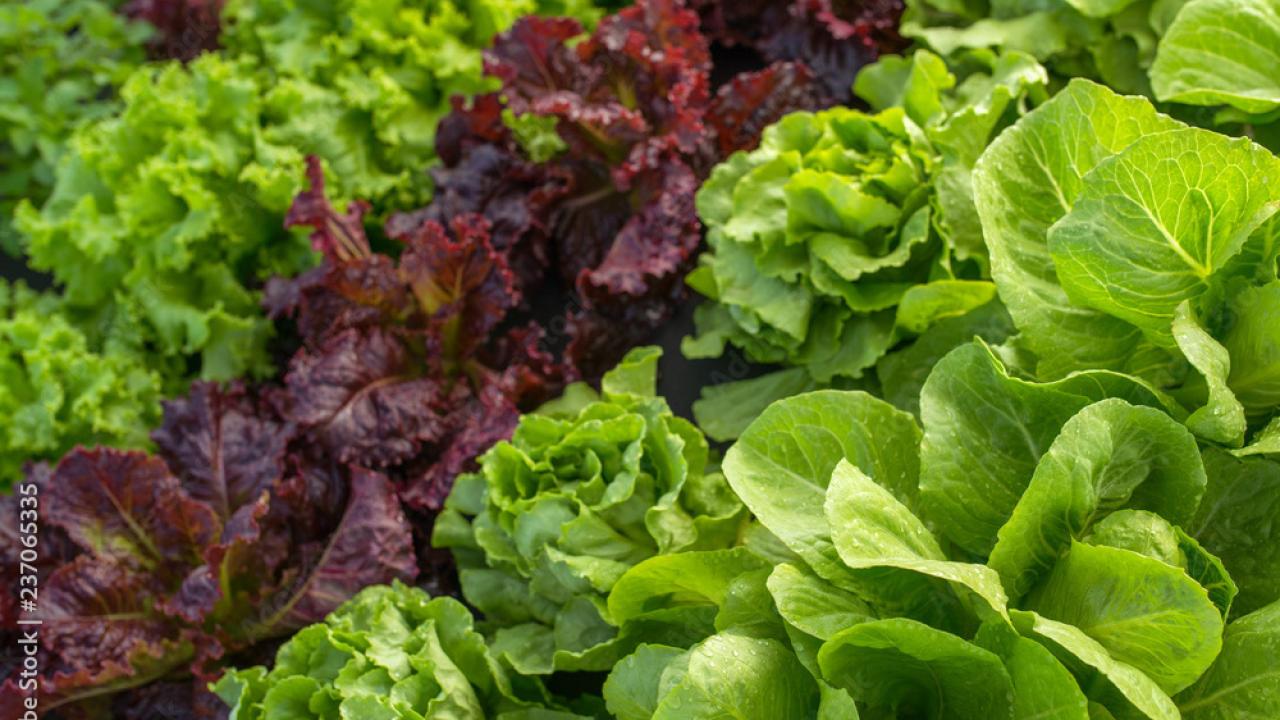
Melotto Lab seeks mighty lettuce
Studies look for genes that resist bacteria
Maeli Melotto and her team at the UC Davis Department of Plant Sciences are looking for strains of lettuce that are genetically stronger at resisting bacteria that can make people sick. Their work has led to the identification of a gene that could play a role in the plant’s susceptibility to E. coli, a bacterium that causes potentially lethal intestinal illness.
If the team could develop lettuce that can fight off the bacterium, that would avoid thousands of cases of sickness each year, cut production costs for farmers and save millions of dollars in public health expenses.
Lettuce “sweats” substances onto the surface of leaves that E. coli and other bacteria can eat. In addition, bacteria can live just below the surface of lettuce leaves. Melotto, a professor specializing in the interactions between plants and microbes, is studying the genetic factors that determine how long bacteria can endure in the leaves. She and her team looked at more than 300 samples of lettuce and how they react to the pathogens, identifying the gene responsible for letting them in.
Their next step is to test whether removing that gene could make lettuce more resistant to bacteria.
Some lettuce more likely to "feed" bacteria
In a related study, Melotto’s team is looking at the surface of lettuce leaves and the layer just below the surface, which has tiny spaces where bacteria can live. The researchers want to learn what natural chemicals are in these two areas, and what compounds lettuce releases onto the surface of leaves that bacteria can use as food. Melotto expects to find that some types of lettuce are genetically disposed toward “feeding” bacteria.

Melotto presented her findings at meetings earlier this year of the California Specialty Crops Council and the California Leafy Greens Research Board. Her work is funded in part by a five-year grant from the National Institute of Food and Agriculture.
Media Resources
- Trina Kleist, tkleist@ucdavis.edu, (530) 601-6846
